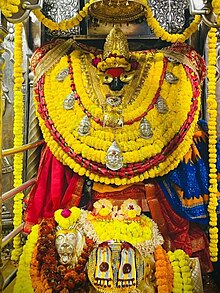Hindu Ethics: Dharma and the Quest for Righteous Living
[ad_1]
Hinduism is one of the oldest living religions in the world, characterized by a rich tapestry of philosophies, rituals, and practices. At the heart of Hindu ethics is the concept of Dharma, a term that signifies duty, righteousness, moral order, and the ethical responsibilities of individuals. The quest for righteous living in Hindu thought is intrinsically tied to understanding and fulfilling one’s Dharma, which varies significantly depending on one’s age, caste, gender, and stage of life.
Understanding Dharma
Dharma is derived from the Sanskrit root "dhr," which means "to uphold" or "to maintain." It represents the moral law combined with spiritual discipline that guides an individual’s actions in their personal and social life. Unlike rigid commandments found in some other religious traditions, Dharma is fluid, allowing for diverse interpretations and applications suited to specific contexts and circumstances.
Dharma is contextually dependent. It encompasses different levels, from universal principles that govern all beings (Sanatana Dharma) to specific duties related to social class (Varna) and life stages (Ashrama). For example, the Dharma of a student differs significantly from that of a householder or a sage. Each individual’s circumstances inform their understanding of their responsibilities, revealing the dynamic nature of Hindu ethics.
Varna and Ashrama: The Framework of Duty
Varna refers to the four primary classifications of society: Brahmins (priests and teachers), Kshatriyas (warriors and rulers), Vaishyas (traders and agriculturists), and Shudras (service providers). Each Varna has its own set of responsibilities that contribute to the societal order.
Ashrama signifies the four stages of life: Brahmacharya (student life), Grihastha (householder life), Vanaprastha (hermit or retiree), and Sannyasa (renounced life). Each stage presents distinct challenges and responsibilities, shaping one’s ethical obligations and understanding of Dharma throughout life.
The interplay between Varna and Ashrama emphasizes that ethical living is not a one-size-fits-all approach; it requires consideration of the individual’s unique position in society and stage in life.
The Ethical Implications of Dharma
Living in accordance with one’s Dharma is believed to lead to Shanti (peace), Sukha (happiness), and ultimately Moksha (liberation from the cycle of birth and death). Aligning one’s actions with Dharma cultivates a harmonious balance within oneself and the broader cosmos, reinforcing the interconnectedness of life.
Hindu ethics also places a strong emphasis on non-violence (Ahimsa), truth (Satya), purity (Shaucha), self-control (Dama), and compassion (Daya). These values serve as guiding principles to achieve a righteous life and a just society. For instance, Ahimsa, popularized globally by figures like Mahatma Gandhi, extends beyond mere physical non-violence to encompass non-harming in thought and speech. The ethical dimension of Ahimsa encourages further reflection: how can one act justly without causing harm to others in a world where actions are interconnected?
The Role of Scriptures and Tradition
Hindu scriptures, such as the Vedas, Upanishads, and epics like the Mahabharata and Ramayana, offer profound insights into Dharma. The Bhagavad Gita, for instance, is a pivotal text that explores the ethical dilemmas faced by individuals, particularly in the context of war and duty. Arjuna’s struggle to fulfill his Kshatriya Dharma amidst personal and moral conflicts highlights the complexity of ethical decision-making in real life.
Throughout history, various commentators and scholars, including Adi Shankaracharya, Ramanuja, and more contemporary thinkers, have interpreted and expounded upon these texts, offering diverse perspectives on ethical living and the nuances of Dharma.
Dharma in Modern Context
In today’s rapidly changing world, the application of Dharma remains pertinent, questioning how ancient principles address contemporary moral challenges such as environmental ethics, social justice, gender equality, and global citizenship. The quest for righteousness requires thoughtful adaptation of traditional ethical frameworks to navigate modern dilemmas.
Young Hindus are increasingly engaging with concepts of sustainability, compassion for all beings, and social equity, reflecting a growing awareness of their responsibilities as members of a global community. This evolving understanding of Dharma not only seeks to uphold ancient wisdom but also aims to foster a more inclusive and equitable society.
Conclusion
Hindu ethics, centered on the principle of Dharma, offers a comprehensive framework for navigating the complexities of life and morality. The quest for righteous living is a dynamic journey, integrating personal responsibility with social harmony. By embodying the values of Dharma, individuals can contribute positively to their families, communities, and the world, fulfilling the age-old aspiration toward a more ethical and just existence. In a world fraught with challenges, the teachings of Hinduism remind us that the path to righteousness is not merely a guideline but an essential foundation for a life lived in alignment with the greater cosmic order.
[ad_2]






